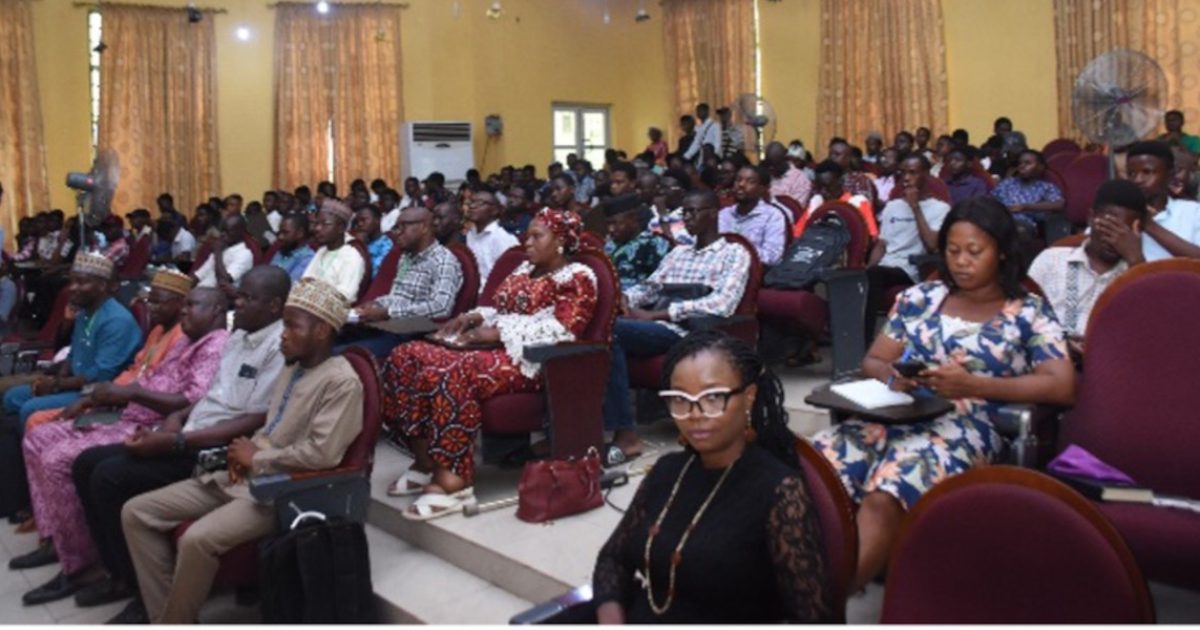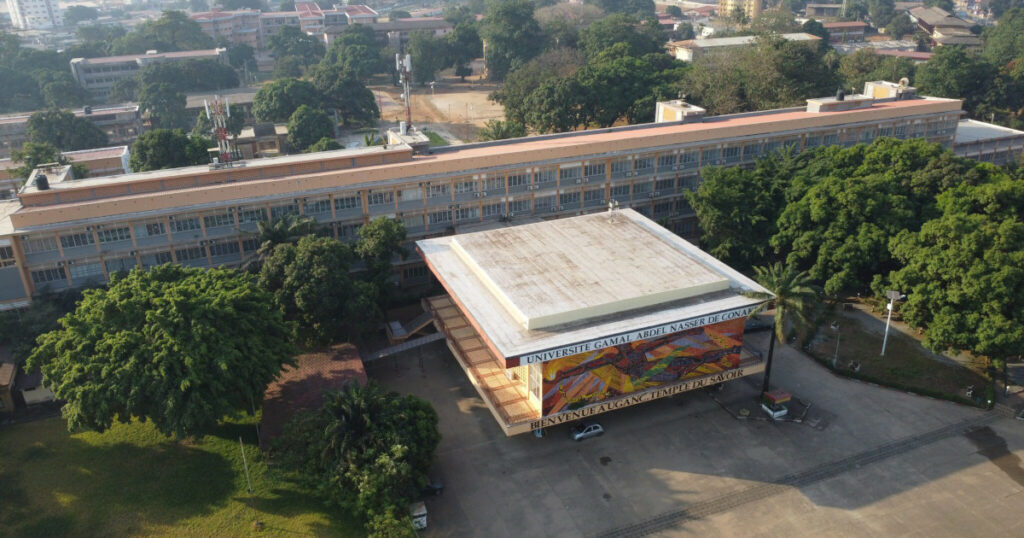With international support, the Federal University of Agriculture, Abeokuta, develops computational physics and chemistry training for Nigerians and others
Physicists in Nigeria have seized enriching training opportunities following the postponement of the 2014 African School for Electronic Structure Methods and Applications (ASESMA) workshop scheduled to take place in Abuja, Nigeria. The Federal University of Agriculture, Abeokuta (FUNAAB), has since hosted two international training programs for theoretical physicists. The first workshop, “Advanced School on Applications of First-Principles and Molecular Simulations in Physical Sciences,” took place in February 2018, led by professor Gboyega Augustine Adebayo and professor Peter Kratzer. The second training, “Joint ICTP–IAEA-FUNAAB Sub-Saharan Africa School on Applications of Monte Carlo and Molecular Dynamics Simulations in Radiation and Health Physics,” held June 5-9, 2024, focused on theoretical studies for medical and biophysicists.
While professor G. A. Adebayo played a pivotal role in both events, with his leadership and vision instrumental to their success, key organizers Dr. Paul O. Adebambo, professor Itunu C. Okeyode and professor Amidu O. Mustapha also made significant contributions. Through their combined efforts, they ensured the success of the ICTP-IAEA-FUNAAB program.
Vice-chancellor’s appreciation
Joy Adeyiga and Femi Dansu (from FUNAAB) report that during the ICTP-IAEA-FUNAAB school’s opening ceremony on June 24, the Vice-Chancellor Professor Babatunde Kehinde emphasized the need to sustain knowledge and skills through post-school mentorship, research collaboration, and student and staff exchanges among participating institutions. Professor Kehinde commended the organizers for bringing the scientific program to FUNAAB and highlighted the university’s contributions to research and development. He expressed gratitude to ICTP for its financial support, noting that young theoretical physicists from developing countries can now pursue careers without leaving their home countries. He also acknowledged the symbolic coincidence of hosting the school alongside the 60th anniversary of ICTP, affirming the Centre’s dedication to extending research skills to scientists in developing countries. He wished participants successful engagements and encouraged them to enjoy FUNAAB’s environment.
Thoughts of the main organizer
After the ICTP-IAEA-FUNAAB event, professor Adebayo, who was instrumental in organizing both workshops in Nigeria, shared his thoughts below on the significance of these training initiatives and the prospects for theoretical physics in Africa in light of these accomplishments.
How do you foresee the impact of these training programs on the development of theoretical physicists in Nigeria and Africa?
Adebayo: “In the activity, we were able to bring together over 65 participants–virtual and in-person–from across Africa, including 26 from Nigeria. This is an impressively large number of foreign participants for a scientific activity in Nigeria. Although the limited funds we had would only have catered for the participation of four foreign participants, the wise decision of the organizers to accept many foreign participants’ virtual participation through Zoom meeting provided expanded access. The impact of the training school will be felt not only by young theoretical physicists, but also by those in radiation and health physics, as the programs’ topics were points of convergence between computational condensed matter physics and radiation and health physics. At the end of the activity, research groups were formed by the participants to carry out small projects, with the potential to culminate into long-term research problem-solving partnerships.
In terms of the growing need for local training, I believe the way to go is a hybrid mode of participation as this will allow participants and speakers to engage fully from any part of the world. However, the immediate problems for virtual mode are the very things our counterparts in Europe and other developed countries are taking for granted, namely, electricity and internet access. In Nigeria, for example, the organizers invested huge amounts to provide uninterrupted power supply throughout the event. Additionally, the prevailing slow internet connectivity is an immediate problem for organizing workshops, meetings and training schools virtually, which has to be mitigated at very high cost.”
Given the emphasis on sustaining knowledge and skills through mentorship, research collaboration, and exchanges, as highlighted by Vice-Chancellor Professor Kehinde, what strategies do you recommend to ensure the long-term success and continuation of these training initiatives?
Adebayo: “African Scientists have to form research clusters across nations to remove border lines, leading to greater collaborations amongst Africans to develop the continent. Also, the training of young ones must be transnational, not just concentrated in a country. In this regard, it is anticipated that the strategy of forming long-term research problems solving groups should help.”
In conclusion, the Joint ICTP-IAEA-FUNAAB School has been pivotal in advancing physics in Africa. With the support of ICTP and IAEA, the initiative emphasizes sustainability through mentorship, collaboration, and exchanges. FUNAAB continues to play a vital role in fostering scientific growth, providing young physicists opportunities to pursue world-class careers locally.
Omamuyovwi Rita Jolayemi, Covenant University, Nigeria
This article has been published by the African Physics Newsletter in April 2025. It is reproduced with the authorization of the American Physical Society.




